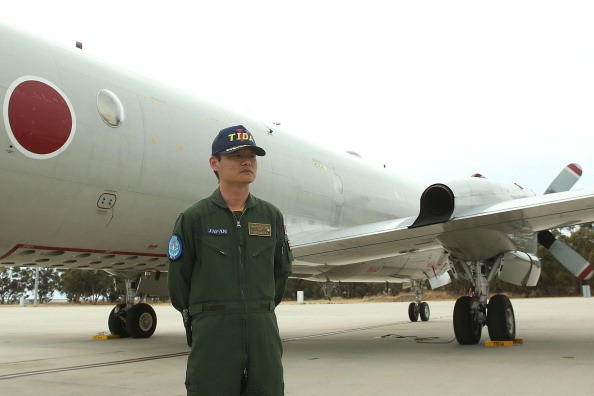Tokyo must not “flare up tension” in the South China Sea or align with other countries involved in territorial disputes with China, the Chinese ambassador said in an interview on Thursday.
Ambassador Cheng Yonghua made the remarks to the China Daily when asked about Japan's recent high-profile stances on maritime issues and its support for joint patrols in the South China Sea.
"Japan is unilaterally standing against China on a basis of partiality, and it addresses any country having disputes with China as its 'pal' or 'brother' in an attempt to encircle China," Cheng said. "This is utterly wrong from the outset."
In response to Japan's reported stance supporting the U.S. "pivot to Asia" strategy, Cheng said "Japan is not even a contracting party in the relevant disputes."
"Freedom of navigation is also a false issue, and what the U.S. is doing in the sea is leading the situation to one of further tension," Cheng added. "Both Tokyo and Washington should clearly bear in mind the status quo and not produce tension."
Cheng also noted that "Japan has turned a blind eye" to a slew of historical facts, including China retaking islands illegally occupied by imperial Japan during World War II.
However, Cheng, who has been China's top envoy to Japan since 2010, said that Sino-Japanese ties have been improving, "but the momentum is still fragile" due to Japan's actions toward China.
Cheng's comments echoed that of Chinese Foreign Minister Wang Yi's remarks at a news conference on Tuesday. Wang described Japan's attitude toward China as "double-dealing" and urged Tokyo to think about "taking China as a friend or foe."
"China values ties with Japan," Cheng said, although adding that Tokyo's actions are "blurred and unclear."
"It is hoped that both countries will work on improving ties on a consistent and stable basis," he said.
Japan's ruling Liberal Democratic Party described China as a "threat" when it pushed to pass controversial new security bills in the past year. The bills were passed and will take effect by the end of March.
Cheng said that China is resolutely opposed to the Japanese government's tactics, saying that China's so-called threats are being overhyped and that the country is being used as an excuse to pass the security bills.
With the bills soon to take effect, Cheng said that China's concerns are "whether Japan will stay committed to the path of peaceful development" and "whether Japan's security measures will affect the security interests of its neighbors, particularly China."
"We hope that Japan will draw lessons from its past, further subscribe to peaceful development and build a peaceful and stable relationship with its Asian neighbors," Cheng added.



























